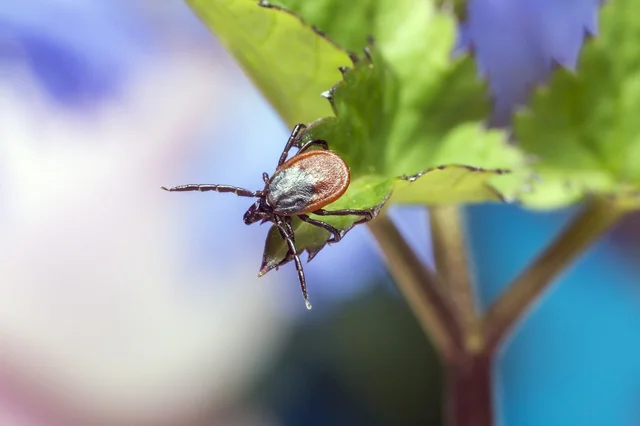Lyme Disease: What you need to know
Borrelia Burgdorferi is a bacteria that causes Lyme disease. It is transmitted by tick bites. Lyme disease is among the most prevalent tick-borne illnesses in America, accounting for more than 300,000. Lyme disease symptoms include fever, headaches, fatigue and an erythema-migrans skin rash. The infection, if left untreated can lead to severe joint pain and heart issues, as well as neurological problems. Although it is possible to treat the infection with Antibiotics effectively, Lyme disease can only be prevented by avoiding tick bites.

Lyme Disease: What does it mean?
Borreliaburgdorferi is the bacterium that causes Lyme disease. It's also known as a Spirochete. Infected blacklegged ticks can spread the bacterium. This type of tick is most common in high-grass areas, where there are shrubs and leaves. The bacteria that is transmitted by a tick can be carried to the bloodstream through bites. Sometimes, victims may not realize that they were bitten.
Although Lyme disease is more common in the Northeastern United States and Midwestern United States than elsewhere in the country, cases have also been reported in other areas. The Centers for Disease Control and Prevention reported that there were over 300,000.
Lyme Disease: Common Causes
Lyme disease can be caused by the biting of an infected blacklegged tick. They are more common in areas with grassy and wooded vegetation, like parks and forests. These ticks can be found in gardens and residential yards. To transmit Lyme disease bacteria, the ticks must be left attached to skin for at most 36 hours.
If they eat an animal with the bacteria such as deer or mice, ticks may become infected. The bacteria can be spread to people if the tick is bitten. Lyme disease may also pass through blood transfusions, or from an infected mother and her unborn child.
Lyme Disease: Common Treatments
Lyme disease can be treated either intravenously or orally with antibiotics. For mild cases to moderate Lyme disease, oral antibiotics will be most effective. In severe cases, intravenous antibiotics may be required. If given in the early stages of an infection, antibiotics may be very effective in treating Lyme disease. In some instances, however, Lyme disease can recur even with treatment.
Other treatments include antibiotics as well as natural remedies such herbs and supplements. Lifestyle changes can also be made to prevent tick exposure and protect the skin from getting bitten.
Lyme Disease Experts and Professionals' Opinions
Experts believe that Lyme disease can be prevented by being proactive. To reduce your risk of getting bitten by a tick, the CDC suggests using insect repellent, long sleeves and pants when outside. After spending some time outside, people should check their skin and pets for ticks. If they find any, it is important to remove them immediately.
Experts recommend Lyme disease testing if someone experiences symptoms such as joint pain or a rash. Lyme disease can be prevented by early diagnosis and treatment.
Lyme Disease: Natural Remedies & Tips
There is no treatment for Lyme disease. However, there are natural ways to reduce the symptoms and increase your overall health. A balanced diet that includes fruits, vegetables, whole grains and lean protein can support your immune system and increase energy. Lyme disease can be reduced by herbal supplements like ginger and turmeric. Regular exercise is a great way to reduce stress and improve your sleep quality. It also helps you increase your strength and endurance.
You can also use these tips to manage Lyme disease:
- Get plenty of sleep
- Reduce consumption of processed food, sugar and caffeine
- Get plenty of water
- Relaxation techniques such as meditation or yoga can be practiced
- For emotional support, you might consider seeking counseling or joining an support group.
These natural tips and remedies may be helpful in reducing symptoms of Lyme Disease. However, these should never replace medical advice. Before you try any natural treatments or lifestyle modifications, consult a physician.
Conclusion
Borrelia Burgdorferi is the bacteria that causes Lyme disease. This infection can be serious and debilitating. Infected ticks transmit it. Preventing tick bites is the best method to avoid Lyme disease. Although antibiotics are the most common treatment, there are natural ways to manage your symptoms. If you believe you may have Lyme disease, it is important that you seek medical care immediately.
This article provides an overview about Lyme disease, its common causes, treatments and opinions of experts. It also offers natural remedies and tips. It is possible to lower the likelihood of Lyme disease-related complications by taking preventative measures and getting treatment early.